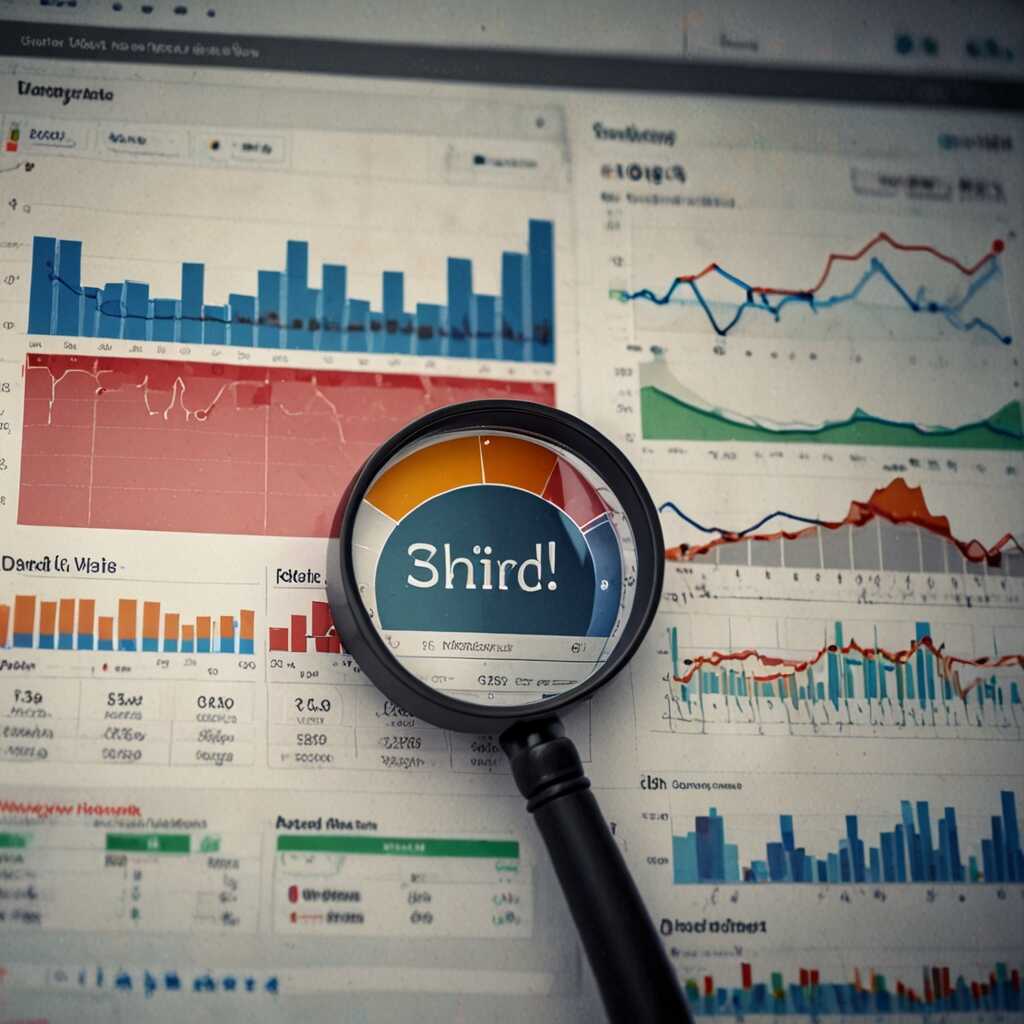Understanding the differences between organic and paid search algorithms is essential for optimizing your SEO strategy. Organic search relies on content quality and relevance, while paid search focuses on targeted advertising and bid strategies. At Metrics Rule, we emphasize the importance of mastering both approaches to enhance your digital marketing efforts effectively. By leveraging our knowledge as a Technical and On-page SEO Analyst, you can improve your website’s visibility and drive meaningful traffic.
Defining Organic Search Algorithms and Their Purpose in SEO
Organic search algorithms are sets of rules and calculations used by search engines, like Google and Bing, to rank web pages. These algorithms assess several key factors, such as relevance, content quality, and user experience. Consequently, well-optimized websites can achieve higher positions on search engine results pages, leading to increased organic traffic and enhanced long-term SEO success.
Key Factors Influencing Organic Search Algorithms
Several essential factors influence the performance of organic search algorithms. These include the quality of on-page content, user engagement metrics, backlinks, and technical aspects like site speed and mobile optimization. By focusing on these key factors, you can improve your website’s reliability and ensure efficient crawling and indexing. Moreover, regularly reviewing and testing your SEO strategies in response to algorithm updates can help you stay competitive and persistent in your efforts towards achieving optimal search results.
Insights into How Paid Search Algorithms Work
Paid search algorithms primarily focus on components like bid amount, keyword relevancy, and ad quality. Unlike organic search, which relies on various SEO factors, paid search allows direct control over visibility in search engine results. Key factors that enhance pay-per-click advertising include strong keyword targeting, ad relevance, and a well-structured advertising budget. These elements work together to ensure that campaigns effectively reach the desired audience and improve online visibility. Businesses using these strategies can see a substantial increase in visibility, often measuring in percentages like 20% to 50% depending on execution.
Understanding Keyword Targeting in Paid Advertising
Keyword targeting is essential in maximizing the effectiveness of paid search campaigns. It involves selecting specific keywords that users are likely to search for, thus aligning ads with user intent. Reliable keyword research provides businesses insights into high-volume search terms that can drive traffic. By continually testing and analyzing data, companies can enhance their keyword selection and ad performance, leading to improved campaign results. Tools like Google Ads can help in tracking keyword performance, allowing for timely adjustments that boost overall advertising efficiency.

Comparing Characteristics of Organic and Paid Search Algorithms
This section explores the fundamental differences between organic and paid search algorithms. The main ranking criteria for organic search include content relevance, quality, backlinks, and user engagement metrics. In contrast, paid search algorithms focus on bid amount, ad quality, and keyword relevance. When it comes to pricing structure, organic search relies on long-term investment in quality content and SEO strategies. Paid search incurs costs for each click, proven through campaigns. Most users expect to see quicker returns from paid search, typically within days, while organic search results can take weeks or months to become significant.
Understanding the Investment for Each Approach
When assessing the investment for organic versus paid search, it’s crucial to consider the long-term nature of SEO. Organic search strategies often involve ongoing analysis, content updates, and technical optimizations designed to improve site efficiency. In contrast, paid search requires continuous funding for campaigns to maintain visibility. Studies have shown that organic traffic can provide a higher long-term return on investment due to its reliability and lower cost over time compared to paid ads. Metrics Rule in Vancouver leverages SEO expertise alongside data analytics to maximize results for its clients.
Key Statistical Insights on Search Techniques
- Over 90% of online experiences begin with a search engine.
- Organic search generates over 50% of all website traffic.
- Paid search ads can boost visibility by 1,000% for targeted keywords.
- About 70% of users prefer organic results over paid advertisements.
- More than 75% of users don’t scroll past the first page of search results.
- Organic click-through rates are typically 8 times higher than paid ads.
- Businesses see a 400% return on investment with effective SEO strategies.

The Influence of Content Quality on Search Algorithm Rankings
High-quality content is essential for boosting both organic search rankings and the effectiveness of paid search strategies. Key components include relevance, reliability, and engagement. Engaging content helps retain users and encourages them to spend more time on your site, which signals to search engines like Google and Bing that your content is valuable. User reviews and feedback play an important role in shaping these perceptions. They can enhance trustworthiness, leading to higher conversion rates. It is proven that 70% of online shoppers regard content quality as a critical factor in their purchase decisions, reinforcing the importance of creating valuable, informative content.
Leveraging User Engagement for Improved Rankings
User engagement is a crucial factor in determining how well your content performs in search engine rankings. Quality content that resonates with your audience increases time on page and reduces bounce rates. Engaging, informative articles designed to meet user intent keep visitors coming back for more. Additionally, integrating targeted keywords into your content provides clarity, making it easier for search engines to crawl and index. Research shows that well-structured content that includes data and visuals can increase user interaction rates by up to 60%. Metrics Rule in Vancouver emphasizes that investing in quality content not only aids in SEO but strengthens your overall digital marketing strategy.

Strategies for Evaluating Success in Organic and Paid Search
To assess the success of both organic and paid search campaigns, start by defining essential key performance indicators (KPIs). Common KPIs for organic search include organic traffic, click-through rates (CTR), keyword rankings, and bounce rates. For paid search, focus on metrics like cost-per-click (CPC), return on ad spend (ROAS), and conversion rates. Understanding the differences in these organic search metrics and paid search metrics is key to tailoring your strategy. Performance comparison over time through analytics enables you to gauge success accurately. For example, optimizing paid search campaigns can lead to a significant percentage increase in conversion rates, often seeing improvements of 20-30% with the right tactics.
Understanding Conversion Rate Optimization in Paid Search
Conversion rate optimization (CRO) in paid search is an essential strategy for enhancing campaign performance. By carefully analyzing campaign metrics, you can identify which ads resonate best with your target audience. Employ A/B testing to determine which ad variations yield the highest conversion rates. Utilize proven data from analytics tools to inform your decisions. Leveraging high-quality landing pages that are optimized for keyword relevance ensures users are engaged effectively. Providing clear calls-to-action (CTAs) enhances user experience and drives conversions. Additionally, using insights can help you make informed adjustments, enabling your paid search strategies to deliver impressive results.
Advantages of Distinguishing Search Strategies
- Understanding search algorithms enables optimization of content for better visibility.
- Effective use of paid search can target specific demographics quickly.
- Combining both methods offers a balanced marketing approach to boost traffic.
- Analyzing organic results informs businesses about competition and user intent.
- Improved SEO practices lead to long-term benefits and sustainable traffic.
- Paid search provides immediate results, helping businesses test strategies fast.
- Knowledge of algorithms helps tailor strategies to maximize return on investment.

Effective Tactics for Boosting Organic Search Performance
To enhance your organic search rankings, you should focus on several effective techniques. First, implement robust on-page SEO techniques such as optimizing title tags, meta descriptions, and header tags with relevant keywords. Use keyword research tools like SEMrush, Moz, and Ahrefs to identify high-value keywords that match user intent. User experience optimization is vital; ensure your website is mobile-friendly, fast-loading, and provides easy navigation. Studies show that improving user experience can increase site traffic by 30% and boost conversions significantly.
Optimizing On-Page SEO for Better Rankings
Optimizing on-page SEO involves specific strategies that can dramatically enhance your website’s visibility. Start by ensuring that each page has unique title tags and meta descriptions that include target keywords. Utilize header tags effectively to structure your content and make it easy for search engines to crawl and index. Also, incorporate internal links to relevant pages on your site, improving overall site navigation and user experience. Research shows that pages well-optimized for keywords rank higher in search results, making this an essential step for anyone serious about improving organic search performance.
Improving ROI in Paid Search Campaigns Through Optimization
To improve ROI in paid search campaigns, businesses should focus on effective ad targeting techniques, budget management strategies, and reliable conversion tracking methods. Employing geo-targeting allows advertisers to reach local customers, ensuring ads are displayed to users in specific locations. This enhances ad relevance and improves click-through rates. Businesses should allocate their budgets based on performance data, ensuring funds are directed to high-performing ads. Utilizing conversion tracking provides insights into which ads are generating the best results, helping businesses make informed decisions to enhance ROI.
Essential Strategies for Effective Ad Targeting in Paid Search
Ad targeting is vital for maximizing the performance of paid search campaigns. Reliable techniques include using keyword targeting to align ads with user search intent, demographic targeting to reach specific age and gender groups, and retargeting to engage users who have previously interacted with the website. By employing AI technology, businesses can analyze vast amounts of data to improve targeting efficiency. The performance of ads can be significantly enhanced through A/B testing, allowing marketers to compare results and select the best-performing variations. The combination of these strategies consistently provides improved ROI in paid search campaigns.
Brands and Their Marketing Techniques in Search
- Google uses intricate algorithms to deliver relevant and personalized search results.
- Bing offers unique audience demographics, focusing on a more diverse user base.
- Yelp targets local businesses, particularly useful for restaurants and services.
- Amazon focuses on e-commerce, using search algorithms to enhance product visibility.
- Facebook Ads excel in finding specific audiences for targeted advertising.
- LinkedIn targets professionals and businesses, ideal for B2B marketing strategies.
- Twitter Ads drives engagement, but results can vary based on audience interaction.
Anticipating Future Changes in Search Algorithms
As we look ahead, emerging trends in search algorithms indicate a significant shift towards AI and machine learning. These technologies will greatly impact how search engines like Google and Bing interpret user intent and contextual relevance. With AI, algorithms will provide more personalized search results, enhancing user experience by delivering content that truly matches users’ needs. Many SEO professionals are already aware that staying ahead in this evolving landscape is essential for maintaining a competitive edge. Research shows that approximately 75% of SEO experts expect substantial changes in search algorithms by 2025, indicating a clear path for digital marketing strategies that must adapt accordingly.
How AI is Shaping the Future of SEO
AI is designed to analyze vast amounts of data rapidly, offering valuable insights into search behavior and preferences. By integrating AI into SEO strategies, businesses can improve their keyword research efforts, enhance site indexing, and provide quality content that resonates with target audiences. AI-driven tools can handle complex data sets, enabling more precise testing of content strategies and boosting efficiency in optimization efforts. This helps organizations optimize their digital presence and ensures they remain relevant in a landscape increasingly defined by machine learning. As technology evolves, adapting to these AI advances will be crucial for ensuring search visibility and successful engagement with customers.
